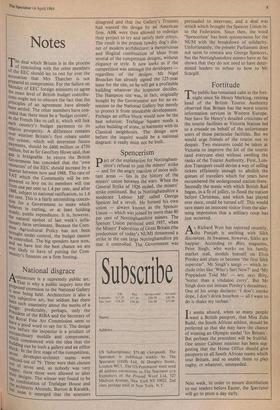Spencerism
D art of the explanation for Nottingham-
shire's refusal to join the miners' strike — and for the angry reaction of more mili- tant areas — lies in the history of the miners' union between the wars. When the General Strike of 1926 ended, the miners' strike continued. But in Nottinghamshire a moderate Labour MP called George Spencer led a revolt. He formed his own union — always known as the Spencer Union — which was joined by more than 80 per cent of Nottinghamshire miners. The Spencer Union persisted until 1937, when the Miners' Federation of Great Britain (the predecessor of today's NUM) threatened a strike in the one large Nottinghamshire pit that it controlled. The Government was persuaded to intervene, and a deal was struck which brought the Spencer Union in- to the Federation. Since then, the word `Spencerism' has been synonymous for the NUM with the breakdown of solidarity. Unfortunately, the present Parliament does not seem to contain any George Spencers, but the Nottinghamshire miners have so far shown that they do not need to have deter- mined leaders to refuse to bow to Mr Scargill.










































 Previous page
Previous page